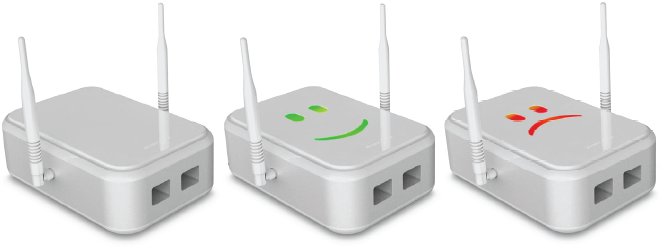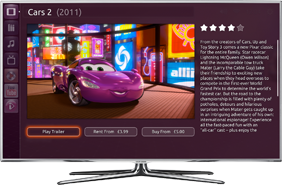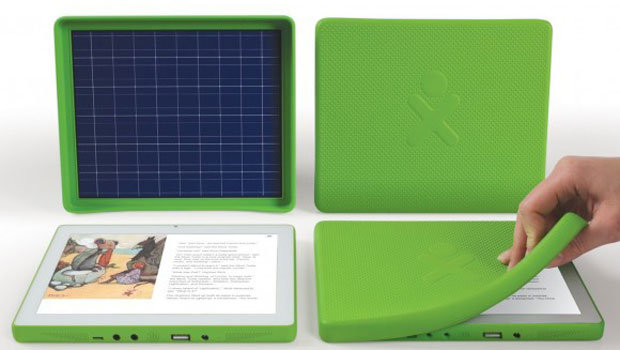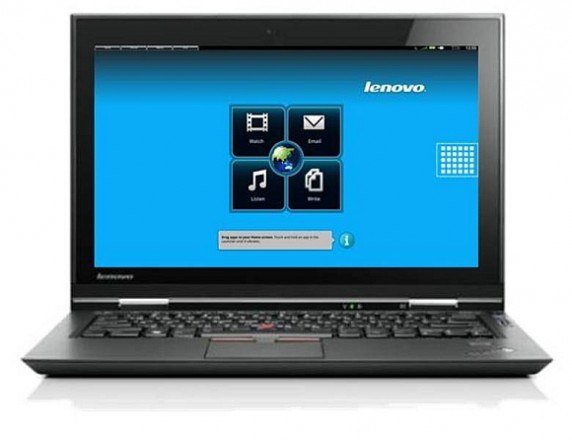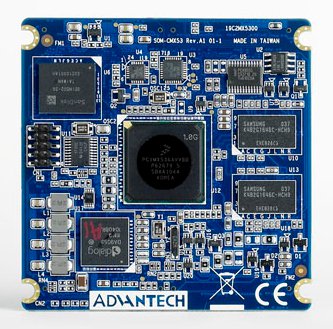Marvell worked in collaboration with Stanford University to design the Marvell SMILE Plug, a development kit designed to turn a traditional classroom into an interactive learning environment. Designed to engage students (via their smartphones / tablets) in critical reasoning and problem solving, the SMILE Plug creates a “micro cloud” within a classroom that is controlled by the teacher. The Plug based on Stanford’s Mobile Inquiry Based Learning Environment (SMILE) – hence the name – provides the ability to establish a local Wi-Fi network for up to 60 students. To simplify deployment and management of the SMILE Plug, Marvell has developed a plug administration API and user interface called Plugmin. Key Features of the SMILE Plug: Wi-Fi support for 60 clients Easy deployment and management 5V Lithium Ion Backup battery Open Platform: Arch Linux for ARM and NODE.js SMILE Junction Server: Plug server/client environment & SDK and access to SMILE applications […]
Ubuntu TV Features and Video Presentation
A few weeks ago, I wrote a post about Ubuntu Smartphone and Television UI Mockups, and today we know more as Ubuntu has just released more information on Ubuntu TV as well as a Video promo of the system. Here are the key features of Ubuntu TV : All broadcast television – Terrestrial broadcast in US and EU standard formats, for SD and HD content with EPG. Cable and satellite possibilities – Integrate your cable or satellite service into Ubuntu TV. Online Videos – Ubuntu TV integrates online content providers to offer a diverse catalogue of movies, TV shows and music straight from the Internet. Tablet/Smartphones Interaction – Link phones or tablets to Ubuntu TV, presenting related content to viewers while they watch such as information on movies by the same director or the reaction on Twitter during live shows. Intelligent search – To simplify and streamline the experience Ubuntu […]
Tizen Releases Source Code and SDK Previews
Tizen, a new Linux based HTML5 operating systems aimed at mobile and consumer devices, was announced at the end of September 2011 without much detail. Today, Tizen has posted a set of pre-release tools, source code and related documentation to give application developers an early look at Tizen. Tizen Alpha (pre-1.0) is a very early preview and is not yet designed for use to create production applications. They specifically released the following items: Tizen source code preview – Operating system source code, including middleware, basic UI, and menu interface Tizen SDK preview – SDK & APIs: Web IDE, Emulator, Web API documentation, and Toolchain If you plan to try Tizen SDK, you development machines should match or exceed the following requirements: Ubuntu 10.04/10.10/11.04 32-bit (Windows and Mac version will be available later) At least dual-core 2 GHz CPU (recommend VTx supported by CPU) At least 2 GB of RAM memory […]
Freescale Announces i.MX6 Lite Series
Last year, Freescale introduced i.MX6 series processors to the market in single, dual and quad core Cortex A9 configurations, today at CES 2012, they have announced i.MX6 Lite Series in single and dual core configuration respectively the i.MX6SoloLite and i.MX6 DualLite. Both processors incorporate ARM Cortex-A9 cores and E-Ink controllers and are especially suited to e-Readers, but Freescale expect the i.MX6 DualLite to also to be used in tablets, IPTVs, IP phones, medical patient monitoring systems and home energy management solutions. The new processors are software-compatible with other i.MX 6 series devices, so that developers can create end-product at different price points using a common platform. Freescale explains that “this scalability enables the rapid creation of complete end-product portfolios that can adjust and scale to meet evolving market demands and requirements”. The two new processors come to replace Freescale i.MX508 device, which is currently used in millions of eReaders. Here […]
OLPC XO-3 Sugar Linux Tablet
The One Laptop Per Child (OLPC) foundation has unveiled the OLPC XO-3 Tablet at CES 2012. This Tablet features a 8″ 1024×768 capacitive LCD touch screen running a version of Sugar Linux for Touchscreen. This must be the only tablet ot running Android at CES 2012… This current sample only have a front camera, but the final device will have both a front and rear camera. They also have an optional solar panel cover (4W panel), that can be used to charge the tablet (2W), so in ideal conditions if you charge it for 2 hours, the tablet can be used for 4 hours. Alternatively, you can also charge it for the hand cracker. A Pixel Qi tablet (not shown in the video below) is also available for extra costs (I’ve heard 100 USD extra) for better readability. OLCP did not specify availability. The way OLPC works is that they […]
Intel or ARM NoteBook? Lenovo Says Both
Lenovo has announced the ThinkPad X1 Hybrid notebook which features an Intel Core processor (i3, i5, or i7 depending on the model) AND a Qualcomm Dual core ARM processor, allegedly a Qualcomm APQ8060 and runs both Windows 7 and a custom version of Linux. My first reaction when I read the news was: “What a stupid idea!” :~/ The ThinkPad X1 Hybrid has 13.3″ HD display with 1366×768 resolution and built with Gorilla Glass. The laptop also features an HD webcam, a fingerprint reader, an encrypted hard disk drive, an HDMI port, USB ports, and Intel’s Wireless Display (WiDi) technology. RapidCharge technology charges to 80% capacity in 30 minutes, i.e. approximately the time it takes to take a shower and cook an egg… (Not my idea, see promo video below). The only thing that can possibly justify having two different processors on the machine is the Instant Media Mode (IMM) […]
Advantech ROM-1210 Computer on Module Powered by Freescale i.MX53
Advantech announced today a new Computer On Module (COM), the ROM-1210, powered by Freescale i.MX53 Cortex-A8 Processor clocked at 1 Ghz, with 256 to 512MB DDR3 onboard, 2GB Flash (upgradable to 64 GB) and supporting OpenGL ES 2.0, OpenVG 1.1 hardware 2D/3D accelerators. The module also supports full HD 1080p video decoding and HD 720p video encoding via its hardware engine. The company targets human machine interface (HMI), digital signage, industrial automation, cloud computing and portable applications with this platform that can run Android 2.3, embedded Linux 2.6 and Windows Embedded Compact 7. Here are ROM-1210 specifications: CPU – Freescale i.MX535 Cortex-A8 1GHz (i.MX536 Cortex-A8 800MHz for wide temp. only) System RAM – 512 MB DDR3 (256 MB as optional) Flash – 2 GB (up to 64 GB) Graphic Chip – 24-bit LCD controller by CPU. Resolution Default 800×480 WVGA (320X 240 ~ 1920X1080 as optional) LCD Interface – 2x […]
Linux 3.2 Release
Linux Torvalds announced the release of Linux Kernel 3.2 on the 4th of January: So 3.2 is out, and the merge window for 3.3 is thus officially open. I delayed 3.2 first a few days to wait for the final linux-next (“final” in the sense that that’s what I’ll fetch to decide whether something has been in linux-next for 3.3 or not), and then some more as people were coming back from holidays and sorting out some regressions. So we do have a few last-minute reverts and small fixes. Still, there’s not a whole lot of changes since -rc7 (shortlog appended), and almost all of them are *tiny*. So despite the few annoying last-minute reverts, I’m feeling pretty happy about it. Linus Linux 3.1 added support for OpenRISC, Near-Field Communication (NFC) and new power tuning tools called cpupowerutils, as well as support for Xilinx boards and i.MX53 ARD. Linux 3.2 […]


